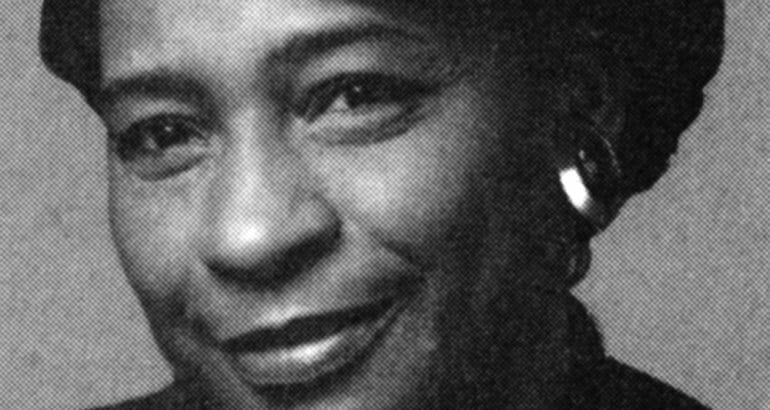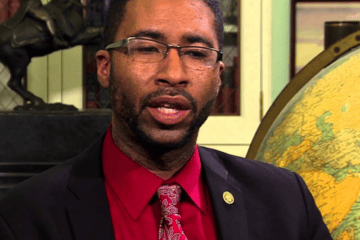Legislative achievements focused heavily on health, social services, and education.
By Arletha Manlove, daughter of Mary Groves Bland
For the more than 30 years she served in the Missouri legislature (House of Representatives and Senate), the late Mary Groves Bland worked tirelessly to help ensure better health outcomes for the state’s underserved communities.
 When Bland was elected to the Missouri House of Representatives in 1980 to represent the 43rd District in Kansas City, Mo., her goals were to help to improve social and economic justice for people of color, including women and children.
When Bland was elected to the Missouri House of Representatives in 1980 to represent the 43rd District in Kansas City, Mo., her goals were to help to improve social and economic justice for people of color, including women and children.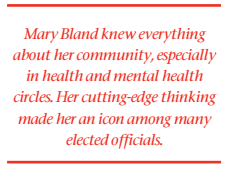
By 1987, she became the Chair of the Health and Public Safety Committee, Chair of Health Appropriation; and sat on the
committees for Secondary and Higher Education, and on Ways and Means Committee.
In the early years, Bland voraciously absorbed information she had access to and applied that education to helping her community find better access and pathways of support for its citizens of color and underserved populations.
As the Chair of the Appropriations Committee for the Department of Health and Social Services and Education, Bland saw report after report on mortality rates for babies, issues with children, mental health challenges, elder abuse in nursing homes and critical health crises in her 60% minority community.
Bland began holding forums with neighborhood leaders and the community to ask the questions, “what’s wrong?” and “what’s needed?” The information gleaned from these meetings would be the start of working toward solutions. She also met with health experts, epidemiologists, social workers and physicians across Missouri to help seek and create solutions. “I figured if we could pursue creative solutions for better services to those who were underserved, starting with babies, children and women, then all citizens would benefit,” Rep. Bland said in 1989.
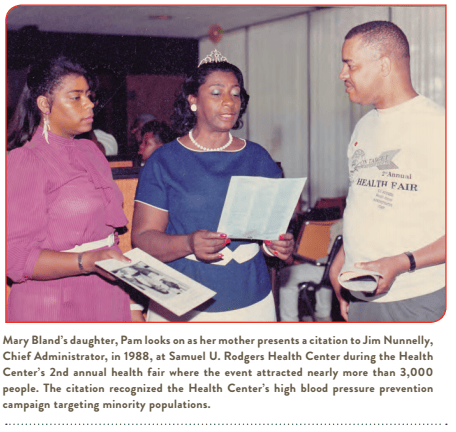 In April 1987, Bland met with Dr. Robert Harman, then director of the Missouri Department of Health, regarding the establishment of the Minority Health Issues Task Force. As a direct result of this meeting, the first Department of Health Minority Health Issues Task Force — consisting of community representatives and department employees — was appointed in May 1987.
In April 1987, Bland met with Dr. Robert Harman, then director of the Missouri Department of Health, regarding the establishment of the Minority Health Issues Task Force. As a direct result of this meeting, the first Department of Health Minority Health Issues Task Force — consisting of community representatives and department employees — was appointed in May 1987.
Bland worked to ensure the task force maintained a focused approach on solutions that would eliminate health disparities and especially issues related to mental health disparities, across Missouri in communities of color and other underserved populations.
In January 1988, the Minority Health Issues Task Force forwarded two formal recommendations to the Director of the Missouri Department of Health:
- Establish an Office of Minority Health within the Missouri Department of Health.
- Reduce infant mortality in black and other minority populations, utilizing the Healthy Mothers, Healthy Fathers, Healthy Babies health education project concept.
 Bland sponsored House Bill 1565, establishing the Missouri Office of sponsored by former
Bland sponsored House Bill 1565, establishing the Missouri Office of sponsored by former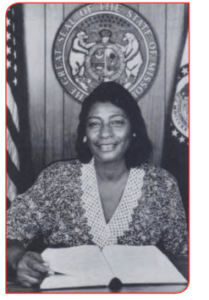 Missouri State Rep. Annette Morgan (Kansas City) and then- Rep. Paula J. Carter (St. Louis). House Bill 1565 was signed into law by Missouri Gov. John Ashcroft in June 1988.
Missouri State Rep. Annette Morgan (Kansas City) and then- Rep. Paula J. Carter (St. Louis). House Bill 1565 was signed into law by Missouri Gov. John Ashcroft in June 1988.
When Sen. Bland retired in 2004, she offered these words about her legislative accomplishments: “I had a lot of hope and passion to help people move the needle in their own lives with the help of education and services designed to reduce the disparities.” •


